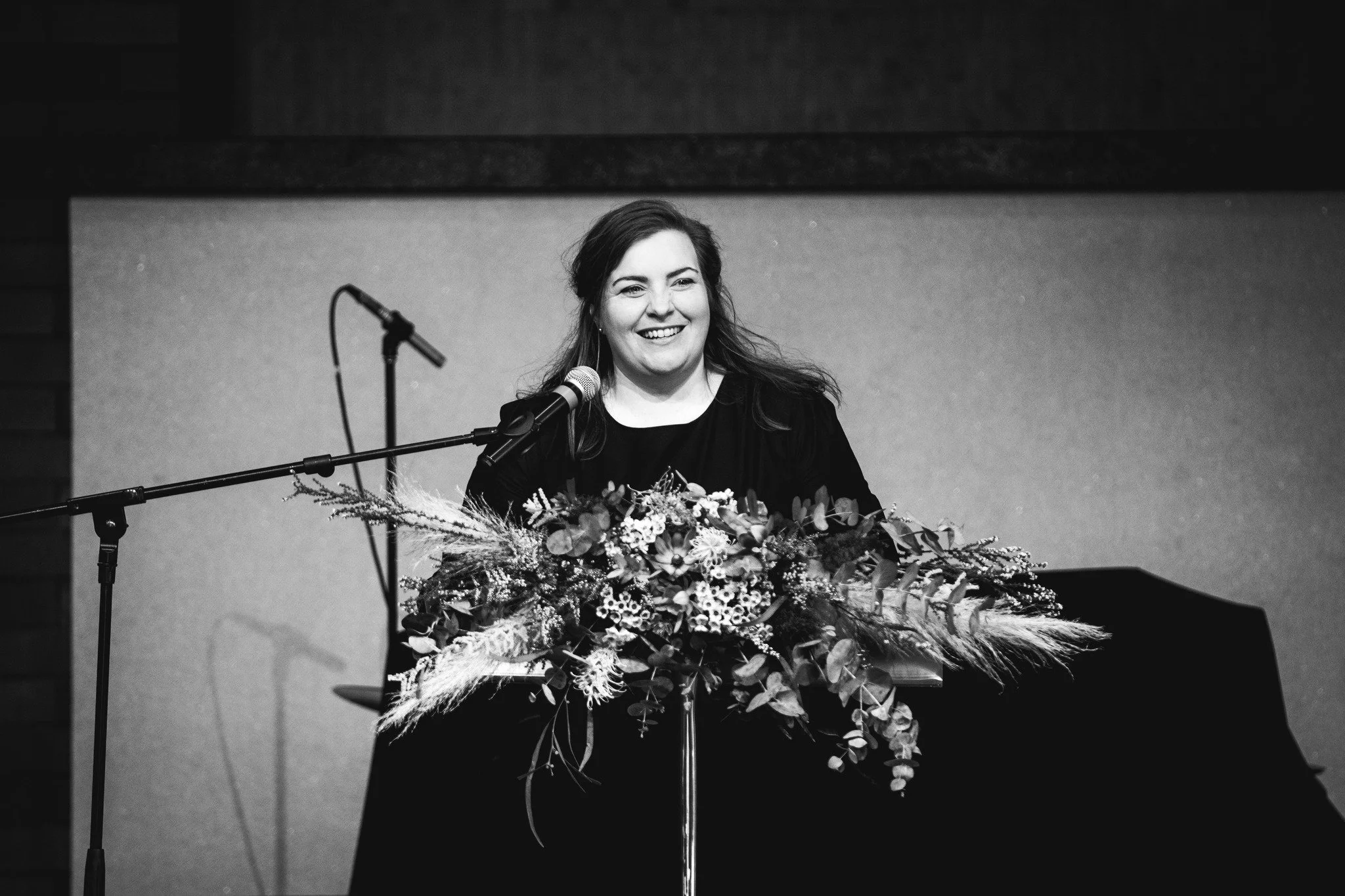Latest Articles

We’re prayerfully seeking a faithful, energetic Christian to join our pastoral team at Hunter Bible Church. While Christian character, gospel conviction and team-fit are the primary requirements of this role, this position would suit someone who is highly flexible, a quick learner, skilled in systems organisation and a great team leader.
Hunter Bible Church is prayerfully seeking a faithful, energetic Christian to join their pastoral team. While Christian character, gospel conviction and team-fit are the primary requirements of this role, this position would suit someone who is highly flexible, a quick learner, skilled in systems organisation and a great team leader.
Most Christian parents I know deeply desire that their children grow up knowing and trusting Jesus. I haven’t met any who would disagree that reading the Bible with their kids is a good idea, and yet I talk to many parents who feel like they are struggling in this area. Perhaps we don’t know where to start? Perhaps we’ve tried and it has frequently ended in tears, tantrums, curly questions, or a lack of engagement? Perhaps our lives and heads are so full of work, sport, hobbies and stuff that we’ve let discipling our children slip off the agenda?
What does it really mean to be a human? What makes you, you? How do our emotions, desires, bodies and relationships affect who and what we are? And what does Jesus have to do with being human?
Our church is currently doing a preaching series called “Being Human” tackling these big questions. It’s about the biblical doctrine of humanity and how that plays out in our age, when everything seems so uncertain.
Keep exploring these issues beyond Sundays with this series introduction and list of handy resources.
Have you ever felt like crawling into a hole rather than face another online meeting? Lockdowns and restrictions inevitably mean more time in video conferences. If that is where our small group is happening we can be very tempted to skip it. But inside we know that would be a mistake, since during the stress of Covid we need each other more than ever. We need prayer, encouragement and simple reminders of God’s truth from the Bible. So what can we do to manage so-called “Zoom Fatigue”?
As I write this article it has been almost exactly one year since our church leadership decided to cease our physical church meetings and go online. At staff meeting on Monday March 15, 2020, we could see the writing on the wall and, sure enough, within a few days, legislation had been passed preventing physical church gatherings.
Radical is one of those books you might feel a bit nervous about picking up. The blurb states that author, David Platt “challenges you to consider with an open heart how we have manipulated the gospel to fit our cultural preferences. He shows what Jesus actually said about being his disciple--then invites you to believe and obey what you have heard”. My heart’s already beating a bit faster.
Doing church at home is weird, isn’t it? I can go straight from washing up to sitting on the couch and being in church, with nothing in between. Church has become something I do privately with my family. We share the service with each other and with God. But church isn’t supposed to be like this.
The Word One to One is a great resource that makes it easy to read through the book of John with a friend. Each of the eleven booklets in the series takes you a step further into this vital book. Each page comes with questions and answers to help grow your understanding of what you read. Take a look!
COVID-19 and quarantine have shown us that other people matter to us. When I was able to meet people whenever I wanted to I took the fact that I could for granted. I can’t describe how excited I was the first time I had dinner with friends when quarantine began to wind down. I’m an introvert. This didn’t used to be exciting!
Christmas and Easter are major landmarks on Christians’ calendars. If you can get someone to talk about what they think about Christmas and Easter and how to celebrate them you’ll probably find out what they think about God before they’ve finished talking. In the same way, asking our Muslim friends about their festivals is a great starting point for talking about what they believe, and potentially also about what we believe.
Baking, gardening, family time—there have been some positives to home isolation. For many introverts (myself included) it has been, on the whole, a very good time indeed. Isolation has provided a wonderful excuse to spend more time alone. But now the restrictions are beginning to lift. Now we can visit each other’s homes and spend more time together in groups. There is rejoicing among those who have been desperate to get out again. But what about the people who are enjoying the isolation? Can’t we just stay home?
In the last 50 years the West has taken individualism to another level. Today we define ourselves as we choose; we live out our own truth. As Elsa taught our children, we don’t let other people tell us what to do. We believe that each one of us should pursue what is right for him or her.
Modern western society has a plethora of books and podcasts on how to parent at all stages of a child’s life. Before print and electronic media the cultural norm was for the elders, grandparents, and experienced parents (usually mothers) gathering around the first-time parents passing on learned, traditional and cultural parenting advice. While parenting seems to be instinctive for other species in the animal kingdom, it certainly doesn’t seem to be the case for humans. In all of this advice there must be a purpose to our parenting, but what is it?
Depending on who you ask there will be a variety of answers to this question. If you asked a kid most will say they know best! They may know what they like — to stay up all night watching TV eating all manner of foods, but do they know best? Children don’t have the foresight or maturity to make wise decisions for themselves. We can teach them how to make wise decisions but they won’t make them naturally. We want to gradually help them make more decisions for themselves as they get older (because they’re going to be adults one day anyway), but left to their own devices they’re not able to decide what is best for them.
It seems logical to think of our children as, well, ours. We conceived them, we gave birth to them, we’ve nurtured and raised them. They’re ours, she or he is mine.
I’m embarrassed to say it, but when the coronavirus pandemic finally came to Newcastle, I thought evangelism was done and dusted. Dead in the water. Kaput! For the last seven years I’ve had the joy of getting to work alongside our church family in sharing Jesus with our city. And I believed in principle that nothing could stop Jesus calling people into His kingdom. But if I’m being honest, in my heart, I didn’t really think it would happen.
Unless you had shares in Zoom, most of us are facing some sort of reduction in income during the caronavirus pandemic. That may have happened quickly if you lost your job or your customers rapidly stopped visiting. Or it may be likely over the coming months as the impact of the economic slow down finds its way to your industry. We’re all going to need to learn how to get by with less.
The book of Proverbs has some helpful wisdom at this time (as it always does).
It’s a basic and beautiful truth that as Christians, regardless of our marital status, we must model ourselves on Jesus, putting on humility and servant-heartedness. Paul exhorts Christians to put off selfish ambition and vain conceit and, ‘in humility value others above yourselves, not looking to your own interests but each of you to the interests of the others.’ (Phil 2:3-4). As we relate with our married brothers and sisters, we can have the same mindset as Jesus (2:5) who went so far as to relinquish heavenly status, take on human creatureliness, and die an agonising death for the sake of his enemies.
Now is the time to look to the interest of those around us, not our own. So how can Christians who are single love the married people in our church communities?
Over the last few weeks I’ve gone through a whole range of emotions. I’ve felt overwhelmed, anxious, full of joy, peace, sadness. I’ve been frustrated, excited, distracted, vulnerable, hopeful and grateful. My routine has been upended. I’ve been in more zoom meetings then I can count.
In the midst of the COVID chaos, one of the things I have found helpful has been to remind myself why I should bother praying.
“Social distancing” will surely be a contender for the word / phrase of 2020. While for some of us, it might still have novelty value or provide us with a welcome excuse for more family time, for many single people in our church communities it is bad news indeed. There were already plenty of challenges around connecting with couples and families before the pandemic, but now there are legal and health-related reasons for people to be closing doors to each other. The coronavirus lockdown may be a hard time for some single people.
There’s a lot to say about being single at a time like this and as a married guy I won’t add too much.* However, I do want to give encouragement and ideas to married people as to how they might care for single people during a time of physical distancing.
























